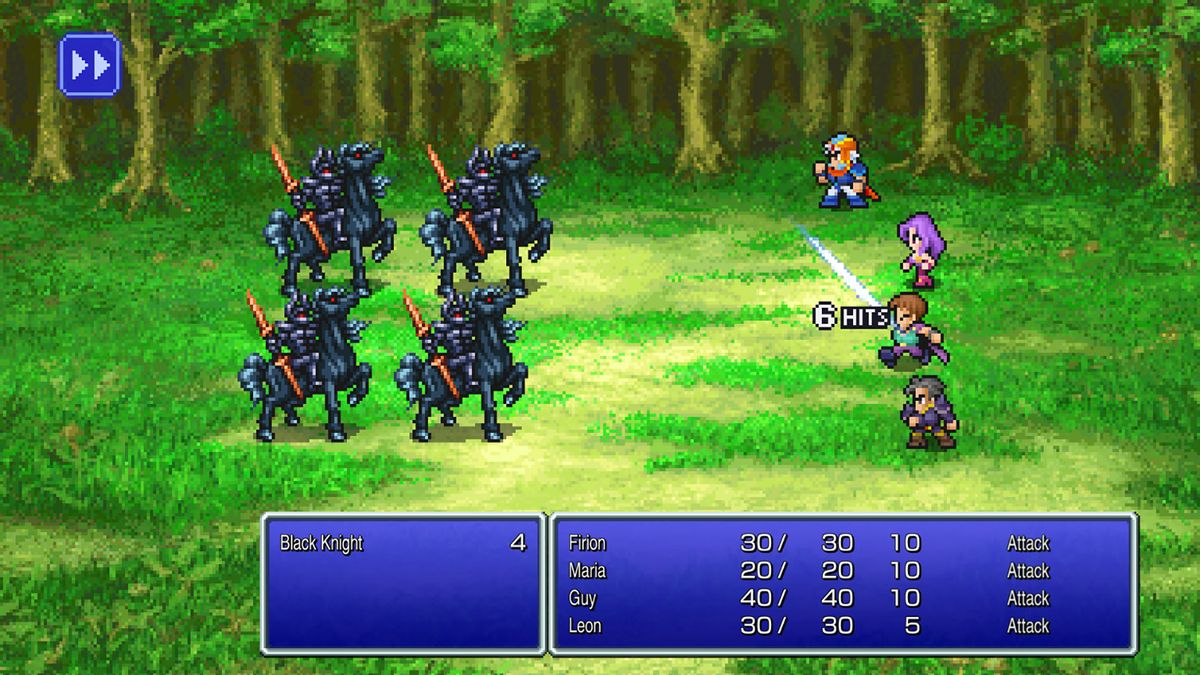Heroic programmer of the first three Final Fantasy games says he'd 'never seen any roleplaying games until Final Fantasy'
The man who John Romero called "my number one programming god" spoke about his work on the foundational JRPGs.

Nasir Gebelli was an Iranian-American programmer who traveled to Japan on a work visa to work for Square in the late '80s and early '90s, where he was instrumental in the creation of the Final Fantasy series. Gebelli's code is so well-regarded that John Romero called him "my number one programming god, my idol" in Honoring The Code: Conversations with Great Game Designers. He's the one responsible for Final Fantasy 3's airship, which hoons along above the overworld map so fast that other programmers weren't able to recreate it.
Following his work on Secret of Mana, Gebelli retired, making rare public appearances like the time he was interviewed by Romero at an Apple II reunion in 1998. However, he recently spoke to NHK World, as spotted by GamesRadar, and talked about his time at Square. Prior to that, Gebelli had worked mainly on action games for the Apple II like the 1981 Defender-clone Gorgon. Going from that to the NES wasn't as much of a leap as you might think.
Japanese national TV managed to track down and do a rare interview with Nasir Gebelli, the genius Iranian-American Programmer that programmed the first Final Fantasy game! #FinalFantasyHe lead the programming for the first 3 Final Fantasy games. What a legend! pic.twitter.com/GnGkWeLeTnJanuary 11, 2025
"I thought it was pretty similar to what I was doing for Apple," Gebelli said, "the same processor, and I already knew just about every machine code for that processor." Both ran on the MOS Technology 6502, the workhorse behind many home computers and consoles of the '80s. "So as far as coding it was pretty simple. There was no learning curve. But I'd never seen any roleplaying games until Final Fantasy [was] brought up."
In the 1980s, games like Ultima and Wizardry were a lot more niche than RPGs are today, though Dragon Quest had been a big enough hit in Japan that Hironobu Sakaguchi could convince Square to let him lead development on the game that became Final Fantasy. A lack of experience with the genre probably wasn't that much of a hindrance, since they were helping to lay its foundations. "It was a challenge," Gebelli said, "but at the same time it was exciting to be able to do something different. And it was also fun to work with the team, especially Sakaguchi-san."
At the end of the interview, Gebelli sits down at a TV to play Final Fantasy. The airship races along. He looks at it thoughtfully, then suggests it could look better "if it was at least like 10% slower."
You can watch more footage from the documentary, which is called Legendary Games Chronicle: Final Fantasy, in English at NHK World's website.
Best cozy games: Relaxed gaming
Best anime games: Animation-inspired
Best JRPGs: Classics and beyond
Best cyberpunk games: Techno futures
Best gacha games: Freemium fanatics
The biggest gaming news, reviews and hardware deals
Keep up to date with the most important stories and the best deals, as picked by the PC Gamer team.

Jody's first computer was a Commodore 64, so he remembers having to use a code wheel to play Pool of Radiance. A former music journalist who interviewed everyone from Giorgio Moroder to Trent Reznor, Jody also co-hosted Australia's first radio show about videogames, Zed Games. He's written for Rock Paper Shotgun, The Big Issue, GamesRadar, Zam, Glixel, Five Out of Ten Magazine, and Playboy.com, whose cheques with the bunny logo made for fun conversations at the bank. Jody's first article for PC Gamer was about the audio of Alien Isolation, published in 2015, and since then he's written about why Silent Hill belongs on PC, why Recettear: An Item Shop's Tale is the best fantasy shopkeeper tycoon game, and how weird Lost Ark can get. Jody edited PC Gamer Indie from 2017 to 2018, and he eventually lived up to his promise to play every Warhammer videogame.

Final Fantasy 14 is, you guessed it, still making bank for Square Enix as Dawntrail rakes in the big bucks, though it might not be all sunshine and tacos

Final Fantasy 14 promises crackdown on stalking exploits with actual solutions now, rather than politely asking the plugin creator to stop
Most Popular









